
The Underground is our recurring feature, resurrected from an all-time great CHUD column, the aim of which is to get the word out on projects outside the Hollywood studio system. Studio films have big promotion engines behind them. The Underground caters to everything else: from indie films, to cult films in the making, pet projects, guerrilla films, internet shorts, etc.
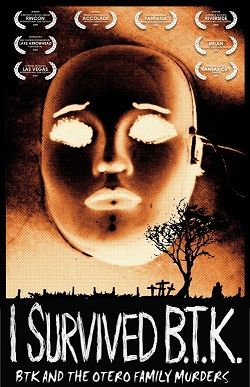 At times, the story of getting a documentary seen can become as involved as getting it made. That’s to what first-time director Marc Levitz has been endeavoring the past few years since his documentary film, I Survived BTK was completed some six years ago. He details his travails in this effort over at Documentary.org, which lays out his still-ongoing mission to get his project to more eyes. What the doco centers on is family members of the victims of Dennis Rader, aka the BTK serial killer. The primary subject is Charlie Otero, who arrived home from school on January 15, 1974 when he was 15 to find four members of his family, father Joseph, mother Julie, younger brother Joseph, Jr. and younger sister, Josephine all bound and murdered, the first four victims of Rader’s nearly 20-year spree which claimed a total of ten victims.
At times, the story of getting a documentary seen can become as involved as getting it made. That’s to what first-time director Marc Levitz has been endeavoring the past few years since his documentary film, I Survived BTK was completed some six years ago. He details his travails in this effort over at Documentary.org, which lays out his still-ongoing mission to get his project to more eyes. What the doco centers on is family members of the victims of Dennis Rader, aka the BTK serial killer. The primary subject is Charlie Otero, who arrived home from school on January 15, 1974 when he was 15 to find four members of his family, father Joseph, mother Julie, younger brother Joseph, Jr. and younger sister, Josephine all bound and murdered, the first four victims of Rader’s nearly 20-year spree which claimed a total of ten victims.
We follow Otero from his first interview, ironically from prison, while serving four years for aggravated assault on his wife. This is a couple of years before Rader was identified as BTK in 2004 via some letters he (stupidly) sent to investigators after having remained dormant for years. Otero is an affecting and even inspiring subject on whom to focus a documentary. He carries the unbelievable horror of what he saw that day after school and can recount it in disturbing detail. And at the time of the initial interview, he believed that there was more that one killer and that he thought his father was killed due to his affiliations with notable figures of society. While that turned out not to be the case, one thing Otero did presciently hypothesize was that the killer had watched a showing of In Cold Blood, just days before he committed the murders.
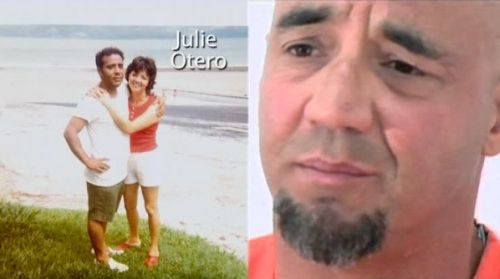
Otero is believable in his quest to rehabilitate, which includes – despite the tremendous ex-con cliche of having found God – speaking at a prison to other inmates. He seeks a relationship with his estranged son, and is making a new life for himself in New Mexico, where he’s lived since he and his surviving younger brother and sister left Wichita in 1974. Although decidedly blue collar (he works as a motorcycle mechanic), Otero is well-spoken, as if he bettered his education while inside. He admits that he struggles with forgiveness for Rader, despite his Christian beliefs. Who can blame him?
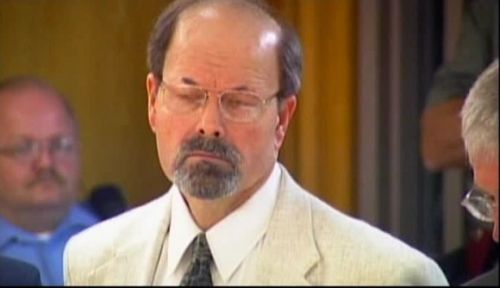
While we follow Otero’s story, the apprehension and trial of Rader are intermixed. Rader initially plead not guilty, but then changed his plea at the start of his trial to cop to the 10 murders of which he was accused. What’s especially disturbing about Rader is that the guy is also extremely well-spoken (he has a B.A. in administration of justice). The empty and matter-of-fact manner in which he describes his motivations for being a sick fuck and how he murdered his victims leaves you disgusted.
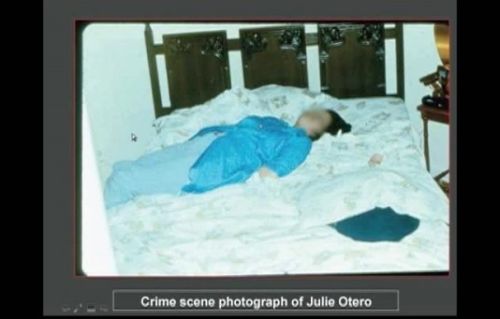
Charlie Otero isn’t the only family member of one of Rader’s victims covered in the documentary. The most powerful testimony comes from Otero’s friend Steve Relford, son of Rader’s sixth victim, Shirley Vian in 1977. Relford’s story is all the more gripping because he was there with his siblings as Rader murdered his mother by strangulation. They were locked in the bathroom at the time. Rader’s act that day was completely random and improvised; and the murder is recounted by both Relford and Rader in detail from both sides in a deleted scene on the DVD. Relford’s account is fraught with crushing emotion, Rader’s is like he’s reading from an itinerary of a business trip. Relford is the first to tell you that the experience (he was five at the time) generally screwed him up for life.
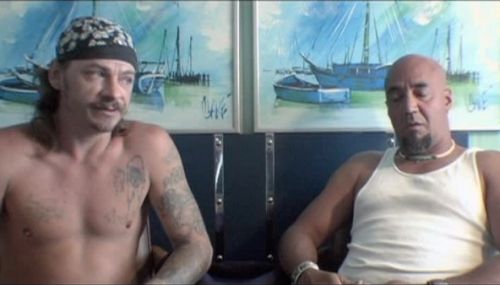
Relford and Otero and his brother and sister, Danny and Carmen, all got to address Rader at his sentencing hearing in 2005. I particularly admired Carmen’s take that although she has never met Rader, he should remember her face because it’s the face of her mother, and that even though she can’t remember her mother’s voice, she is her mother’s voice and she knows that she’s been heard. Charlie was equally elegant in stating that despite Rader’s efforts, he failed to kill the Otero family. It’s during that sentencing hearing that Otero got some devastating news involving someone close to him. That event led to an unexpected epilogue a couple years later of Otero recovering from another tragedy, but remaining a survivor.
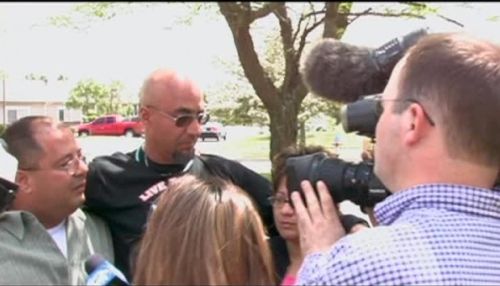
Past reviews of I Survived BTK have commented, and director Marc Levitz himself has admitted, that the documentary wanders and gets off topic from time to time. I can’t disagree with that. But I personally think the strayings are not entirely a dealbreaker. Obviously the story went beyond Levitz’ initially expected limits because two significant events happened in Otero’s life as he started the documentary: (1) Rader was surprisingly caught after 30 years and (2) the devastating news Otero receives. But Otero is a sympathetic subject and his recovery from a wild life after his family’s murders, prison and that last hard bit of news is stirring. One misjudgment I think Levitz made, however, is that the title of the film is even more apt to Steve Relford. I think a two-pronged story following both Otero and Relford could have smoothed over some of the rough spots the documentary experienced. Still, Levitz was a first-time filmmaker here and even financed the film himself. I can respect that Levitz stayed with the story probably far longer than he intended to a generally satisfying, if somewhat imperfect conclusion.
I Survived BTK (aka Feast of the Assumption: BTK and the Otero Family Murders) is currently available on Netflix and DVD (here). The DVD has two deleted scenes, one titled “BTK’s Otero Murder Allocution”, where he describes in detail the murders, and “Steve Relford Remembers”, where Relford and Rader come at the story of the murder of Relford’s mother from two completely different perspectives…and temperaments. There are also two news stories updating Otero’s story since the end of the documentary. The last feature is a gallery of graphic pictures of the crime scenes. I didn’t bother with that one too much.
You can find more info on I Survived BTK at the website here.
Rating: 




Out of a Possible 5 Stars
If you’ve got a film or project somewhere in the fringes that belongs in The Underground and needs some attention, hit me up at davidoliver64@netscape.net